Professional Certificate
Building the Resilient Organization
Fostering Resilience and Embracing Challenges
Now that the 2020-21 pandemic is easing, organizational leaders worldwide face the challenges of “coming back to work.” These past months have tested organizational resilience unlike anything in the past several decades, leaving many leaders exhausted and their workforce stressed. And new challenges await – effects of climate change, technology, economic instability, and continuing social unrest. Today’s challenge is not simply to bring the company “back.” The most successful organizations will be those that have learned resilience: the ability to anticipate, adapt, and learn from disruption. This professional certificate offers an approach to organizational resilience based upon the principles of “deep learning,” a mindset that embraces challenges to existing worldviews. A deep learning mindset sees environmental turbulence and the disorientation it creates not as a distraction but as a creative force for constructive change. The certificate will examine how to develop a deep learning mindset at three levels: individual, team, and the entire organization. This certificate program is offered by Antioch University's Graduate School of Leadership & Change.
This certificate is designed for leaders who want to help make their organizations more resilient through the adoption of deep learning principles. The certificate is based on the belief that leaders throughout an organization, whether they have positional authority or not, can begin to change a culture from one that depends on predictability and control to one that understands the need to use the disorientation created by constant turbulence as a path toward innovation and organizational flourishing.

How You Will Benefit from this Certificate

Strengthen your resilience as a leader, and increase your organization’s capacity to handle turbulence
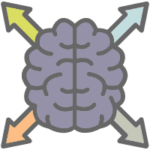
Shift your and others’ mindsets and foster creative ways of thinking
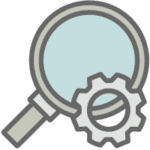
Help those in your organization accept and make sense of new realities, and establish a new common ground
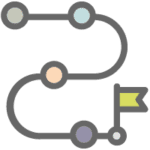
Build teams that anticipate, adapt and learn from disruption

Leadership Resilience through Deep Learning
Discuss how to apply deep learning to build resilience both for oneself as a leader and as a facilitator of deep learning in others. Learning will be facilitated through.
Course Description
Today’s leaders find themselves in a turbulent environment where unpredictable change is the norm. Critical to success in this new era requires developing a “deep learning mindset,” a deliberate effort to self-disrupt, repeatedly breaking from one’s comfortable assumptions and habits to address new challenges and engage with a growing and diverse set of stakeholder groups. A deep learning mindset creates the level of disorientation needed to generate new levels of insight, critical for the growth of a leader’s capacity to lead. In this course we discuss how to apply deep learning to build resilience both for oneself as a leader and as a facilitator of deep learning in others. Learning will be facilitated through:
- Using powerful questions to initiate self-discovery and mindful learning
- Leveraging disorienting dilemmas for the purpose of building leader capacity
- Using the arts to deepen connection to others
Learning Experiences
- Using powerful questions to initiate self-discovery and mindful learning
- Leveraging disorienting dilemmas for the purpose of building leader capacity
- Using the arts to deepen connection to others
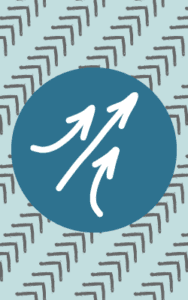
High Performance Teams: Resilience and Creativity
Discuss strategies designed to build and manage resilient teams from the perspectives of team members and team leaders.
Course Description
In today’s volatile environment, more organizations are focusing on creating resilient teams that are prepared to anticipate, adapt and learn from disruption. Resilient teams respond to disruption by approaching challenges with mindful reflection and creativity and less reliance on past thinking. Increasing team resilience requires cultivating an atmosphere of shared learning, openness, and reasonable risk-taking. In this course, we discuss strategies designed to build and manage resilient teams from the perspectives of team members and team leaders. Strategies to build resilient teams include fostering team mindfulness, nurturing constructive disruption and cultivating mutual learning.
Learning Experiences
-
- Discussing case studies of organizations and teams that have proven to be resilient in the face of disruption
- Exploring approaches, strategies and methods designed to increase team resilience
- Examining and applying team resilience assessment strategies and tools
- Re-visiting your own team’s purpose and, as needed, build new norms
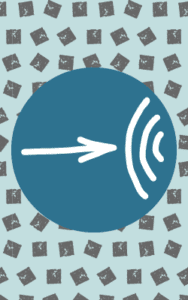
Building Resilient Organizational Cultures
Discuss approaches to building adaptive and resilient organizations, including methods to introduce constructive disorientation and fostering organizational cultures that value mindfulness and dialogue for learning and emergent change.
Course Description
Understanding how to foster and strengthen organizational resilience has become more urgent in the wake of the seismic disruptions of 2020-21. As many leaders are discovering, this requires the ability to diagnose organizational strengths and weaknesses, approach change as an ongoing, iterative process of experimentation and learning, and foster cultures of mutual collaboration. In this course we discuss approaches to building adaptive and resilient organizations, including methods to introduce constructive disorientation and fostering organizational cultures that value mindfulness and dialogue for learning and emergent change.
Learning Experiences
- Exploring the notion of organizational culture and strategies for culture change
- Experimenting with diagnostic tools to trigger a creative process of constructive disorientation
- The introduction of a simple model of change that enables adaptation and self-organization
- Case studies and recent examples of organizational change initiatives
This program and our other certificates can be customized to meet individual, team and organization development needs.
